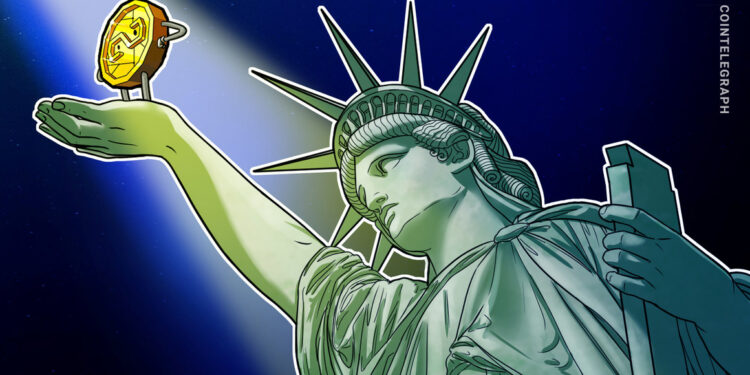- Circle-CSO calls on US policy to regulate stablecoins.
- Regulation can promote the competitiveness of the United States and create new jobs.
- The United States must follow the MiCA regulation of the European Union (EU).
Dante Disparte, the chief strategist and chief lobbyist of the stablecoin publisher Circle, has called on American politicians to create a balanced and fair regulation for stablecoins.
In the company’s own blog, Disparte named 18 points yesterday, which Circle considered necessary for the regulation of stablecoins in the USA. For example, the company addresses topics such as data protection, “fair competition” between banks and non-banks in the issuance of digital currencies pegged to the US dollar, the possible consistency of stablecoins alongside a central Bank digital currency (CBDC) and general legal clarity, among others.
“The harmonization of legal frameworks and regulatory requirements with regard to digital currencies ensures greater US competitiveness, job creation and greater diversity in the payment system, while at the same time preventing a harmful ‘fintech crisis’ on the domestic market and emigration abroad,” says Disparte.
The emergence of #Stablecoins (noting that not all are created equal) has triggered an important global policy and regulatory conversation. With a front row seat in this work since 2019, I’m pleased to share @circlepay’s stablecoin policy principles.https://t.co/GGPFBgJ0AL
– Dante Disparte (@ddisparte) July 18, 2022
In this context, the Circle CSO also refers to the new crypto regulation in the European Union (EU) – the so–called markets in crypto assets (MiCA) – which, in turn, are aimed at harmonizing the regulatory provisions in the EU member states. Building on this, the US could now work to ensure that there are no major deviations in the global regulation of stablecoins.
A working group of the American government had already presented a report on the regulation of stablecoins in November. Among other things, it was proposed that the publishers should be subject to “supervision at the federal level”, whereby Congress must assume an overarching monitoring function, because digital currencies could quickly grow “beyond the competence” of federal authorities such as the Securities and Exchange Commission (SEC) and the CFTC.
Disparte was previously involved in Libra, Facebook’s stablecoin project, which was later renamed Diem, before moving to Circle in April 2021.







